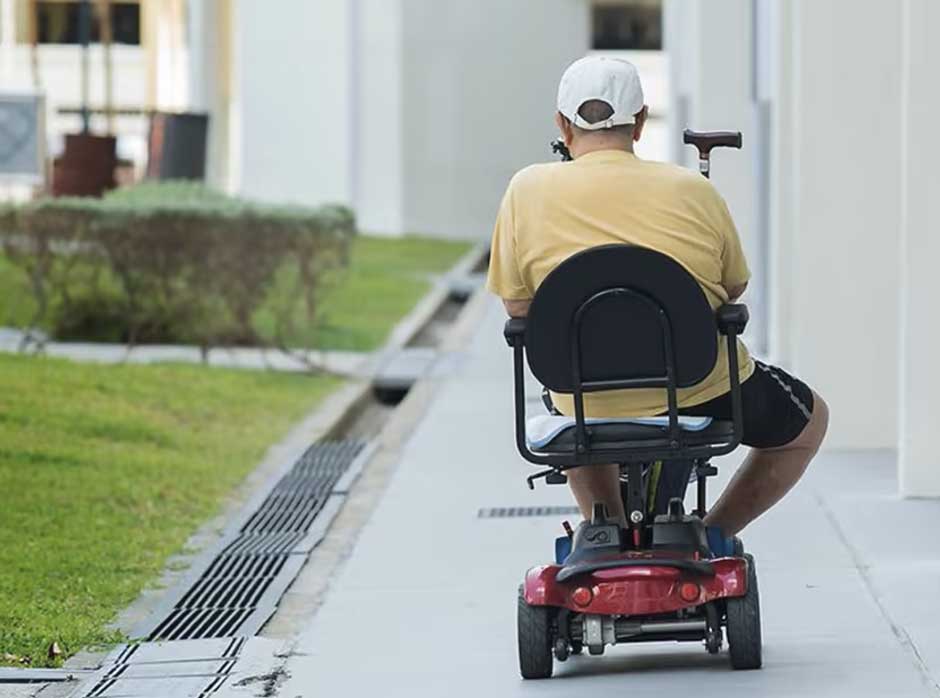Why You Can’t Ignore Mental Health in Seniors with Limited Mobility

Mental health is a very important component of the overall well-being of elderly people but it is generally not given much attention particularly in individuals who have low mobility. Old age is a challenging condition and the physical constraints can make one feel isolated, anxious and depressed. Although medical care is more often given with regard to the physical conditions, emotional and psychological needs are equally essential. The issue of mental health should be tackled so that the elderly people may have the best quality of life and be able to live with dignity and comfort.
Lack of mobility may greatly affect everyday life as things that were initially easy to perform become extremely hard. The elderly spending more time in the hospital or those on mobility aids might not connect well with the environment and be unable to engage in social activities. This disconnectivity may also lead to loneliness and intensify mental health challenges over time, thus proactive support and care are necessary.
Emotional Effects of Impaired Mobility
Lack of movement may cause anger and feelings of powerlessness. The elders who used to organize the schedule themselves might be left at the mercy of others in terms of fulfilling their everyday needs and this can be demoralizing and self-degrading. These emotions can be intensified with some physical pain or chronic illnesses that further restrain activity and independence.
Anxiety and depression are usually the psychological effects of limited mobility. The inability to do pleasant things and social networks may make daily life monotonous and alienating. Caregivers and family members need to understand that these emotional issues are equally as important as any other health related issue and treat them with a level of sensitivity and uniformity.
Role of Mental Stimulation
The brain needs to be stimulated to avoid cognitive deterioration and enable the mind to stay emotionally healthy. Mind-stimulating activities, including reading, puzzles or acquisition of new skills, can be useful to improve mood and may give a feeling of achievement. The elderly who are not mobile enough should be provided with platforms that make their minds more active and receptive.
With innovative adaptations, the seniors with limited mobility can be allowed to engage in such activities without complaints. As an example, using a simple system like a book shelf, games, or art supplies that are easily accessible in a workchair or hospital beds will give the seniors a chance to practice their brains without experiencing any form of physical exertion. Promotion of these practices will always create resilience and minimize chances of depression.
Significance of Social Interaction
Social living is a key to mental health even when seniors are physically challenged. Communication with friends, relatives, and the community assist in easing the isolation and give a sense of belonging. Even such a simple activity as phone calls, video calls or visits can significantly impact the emotional status of a senior.
In the case of the seniors who have difficulty moving around, the social activities might need some innovative ways. Social interaction can be achieved by organizing small groups at home or conducting safe transportation. Mobility scooter or other gadget can make the seniors more active in their communities by making them feel freer and more satisfied.
Professional Support
Mental health issues may require professional assistance to overcome the difficulties. Geriatric therapy is offered by professionals working with geriatrics, such as therapists, counselors, or psychologists, who can offer customized interventions to increase mood, decrease anxiety, and improve coping. There should be priority in access to mental health and medical care of physical conditions.
Caregivers and family members are important in helping to provide professional assistance. Observation of emotional fluctuations, promotion of therapy, and support of mental health services can guarantee that elderly people are provided with multifaceted care. In the case of limited physical mobility, even the shortest visit with a professional can alter the well-being of a person significantly.
One should not disregard mental health among seniors with limited mobility. Emotional challenges can be caused by physical limitations, isolation, and lack of independence and can dramatically impact the quality of life. Caregivers can preserve dignity, strength, and contentment of the seniors by acknowledging the need to be socially engaged, challenged, and supported professionally. Mental health and physical care are the two strategies that provide a holistic approach that benefits both the body and the mind to enable the elderly lead better and productive lives.


